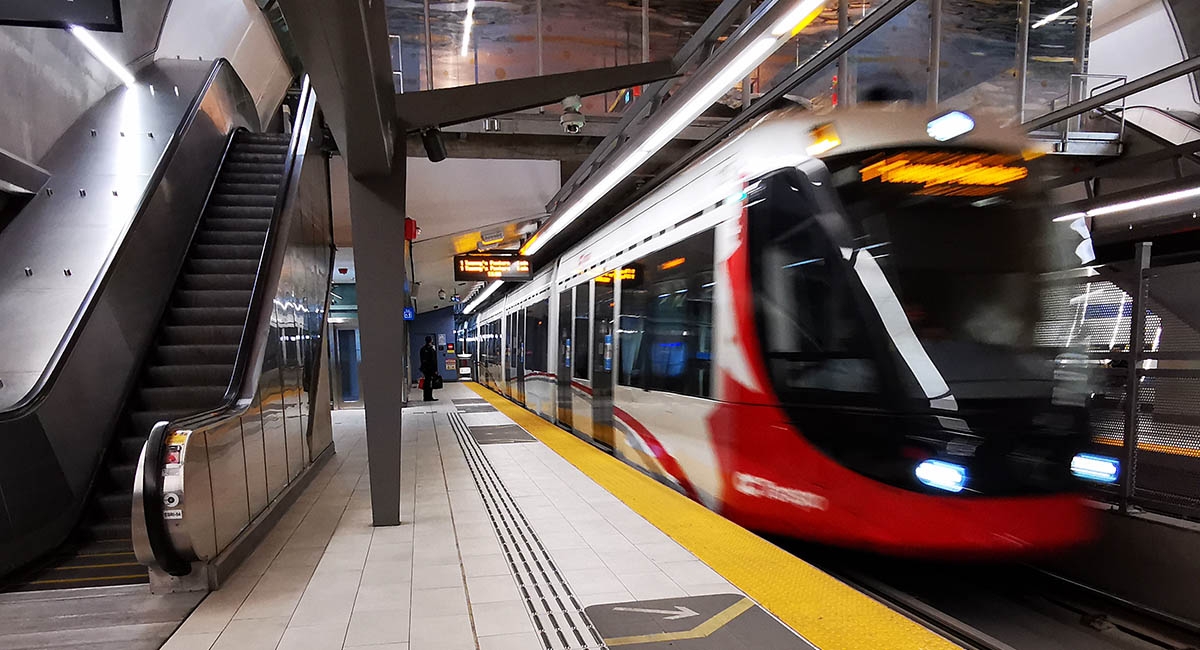
We’re learning who is at fault for which LRT failures in court
The revelatory finger-pointing between Ottawa and the LRT designers continues.
To the surprise of few, the City of Ottawa and the Rideau Transit Group (RTG)’s legal challenges with each other have been nasty–not least because RTG is still maintaining the Light Rail Transit (LRT) system.
The City of Ottawa is in court with RTG to confirm that the company has not lived up to its agreed-upon project obligations and is in default, allowing them to terminate RTG’s valuable maintenance contract.
The latest drama, revealed in last week’s filings in Ontario Superior Court, is RTG CEO Nicolas Truncheon’s assertion that Ottawa launched the Confederation Line prematurely. Because the completion of the Line was over a year late, “there was intense political pressure to bring the system into service when it approached completion,” he says. That would certainly be clear to any of the thousands of Ottawa residents who were displeased with the years of delays and problems with the LRT’s construction.
Truncheon says the City didn’t consult RTG or the construction contractor before offering full service to the public on September 14, 2019. City officials such as John Manconi had said it would take a few weeks before the LRT would be open to the public, and Truncheon says that RTG “recommended a soft opening for the system.” Instead, Ottawa residents got to experience a rather hard opening, a launch infamously full of issues.
Remarkably, Truncheon seems to fault the public as well as the politicians. “The public and elected officials have seemed unwilling to accept the normal growing pains associated with bringing a system of this nature online.” Truncheon attempts to walk the tricky line of suggesting that these failures are normal, except for the decisions the City made, which were not.
It’s a convenient argument for a court case but not an objectively great argument. Why was the City under pressure from the public, Mr. Truncheon? Although perhaps the City could have done a better job in its approval and contracting process to ensure RTG’s delays and failures were less likely, it would be absurd for the head of RTG to blame the City for poorly regulating RTG itself. Surely City management was not so bad that RTG was forced to make most mistakes and delays.
And while Truncheon might find the people of Ottawa impatient, this was not merely “normal growing pains.” Perhaps it’s normal for a significant new train line to be a year late; certainly, the delays in Council agreeing on a replacement for older cancelled transit system plans affected public perceptions and weren’t RTG’s fault. But sinkholes–plural, tunnel collapses requiring rescue efforts for trapped construction workers and trains that couldn’t work in cold temperatures in the capital of Canada, a country that is frequently, well, cold? These do not strike one as ordinary failures that a public reliant on public transit could reasonably be expected to accept without complaint.
A better argument would be that the public impatience was caused by the system’s difference rather than its routineness. Though not the first light rail project, Ottawa was the first North American City planned to rely on light rail rather than buses or subways for most of its transit needs. Truncheon describes cancelling bus service at the disastrous launch of the LRT as a mistake by the City, but the fact that most public transit users were expected to use the LRT magnified all image problems.
Even then, however, the LRT’s uncommon importance to Ottawa transit amplifies the failings of Ottawa’s LRT and not merely the perception of them. “Routine” failures for public service are genuinely more harmful when they are part of a system people need to get downtown.
The mayor’s response to RTG was also lacking. “They actually presented me [with] a giant key to say, here’s the start of the LRT,” Jim Watson argued, saying he fundamentally disagreed with the company’s interpretation. “It was their call, and obviously, we consulted with them.”
Unfortunately, receiving a large symbolic key is not the same as getting full approval to launch a transit service two weeks after handoff. Clearly, RTG could both publicly signify their LRT handoff to the City and have strong differences of opinion on the system’s launch.
It’s understandable that Watson would be critical of RTG, however, since RTG is now framing City officials’ decisions negatively in their own legal arguments. Truncheon added that Ottawa taking this matter, and others, to court instead of arbitration was “politically motivated,” an attempt to distract the public from the Ontario government’s public inquiry into the Confederation Line. However, with all the flaws exposed and bad blood between the two groups, it seems unlikely that more arbitration would have yielded the result Truncheon wanted.
Of course, if Truncheon believed the City needed more time before launch, RTG could have insisted on testing the system for a few more weeks. RTG delayed the project in the past without facing financial penalties. Certainly, weeks and months of previous delays were done in the name of safety. Truncheon’s argument that the City ignored the arbitration step in their contracts already suggests that not all the rules were being followed to RTG’s liking, in any case. If Truncheon saw the initial failures as a likely outcome, it would be in the interest of the group to uphold its reputation and to find a solution.
RTG is probably right that the City launched the LRT early, and it wouldn’t be surprising if future evidence proves that they encouraged delaying the launch. The public pressures the City faced were no secret. The first weeks of LRT featured numerous issues, culminating in the first apologetic offer of free transit and the temporary return of downtown bus service. But there’s little reason to believe that the system would be ready and largely problem-free even after the suggested additional month or so of preparation, given that the LRT has had numerous problems in the months and years since then.
As this and the other court cases progress, there will likely be more controversial filings from RTG and more criticism from the City as RTG tries to avoid losing up to $1 billion in future maintenance contracts. In the meantime, maintenance of the LRT will continue as new LRT lines are being developed. Truncheon’s possibly ignored preference for a later LRT launch is the sort of thing that both parties to an agreement usually benefit from discussing among themselves; it will be hard to trust that future compromises and disagreements with the City will remain private.
Failures notwithstanding, no side ultimately benefits from these court battles in the context of the situations that inspired them, and it seems reasonable to assume that no side wanted all of this.
Hopefully, the now-poisoned atmosphere surrounding LRT development and the bad public image of the LRT project won’t hinder RTG’s ongoing maintenance work or the contracts to develop the next phase of LRT. Unfortunately, it probably will do just that.
PHOTO: OLM Staff









